Filter by
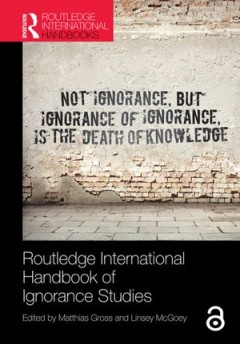
Routledge International Handbook of Ignorance Studies
Once treated as the absence of knowledge, ignorance today has become a highly influential topic in its own right, commanding growing attention across the natural and social sciences where a wide range of scholars have begun to explore the social life and political issues involved in the distribution and strategic use of not knowing. The field is growing fast and this handbook reflects this inte…
- Edition
- -
- ISBN/ISSN
- 9781317964674
- Collation
- -
- Series Title
- -
- Call Number
- 301 ROU r
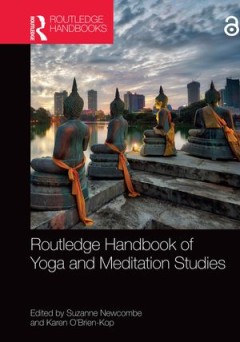
Routledge Handbook of Yoga and Meditation Studies
The Routledge Handbook of Yoga and Meditation Studies is a comprehensive and interdisciplinary resource, which frames and contextualises the rapidly expanding fields that explore yoga and meditative techniques. The book analyses yoga and meditation studies in a variety of religious, historical and geographical settings. The chapters, authored by an international set of experts, are laid out acr…
- Edition
- -
- ISBN/ISSN
- 9781351050746
- Collation
- -
- Series Title
- -
- Call Number
- 305.8 ROU r
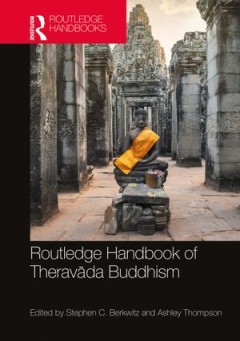
Routledge Handbook of Theravāda Buddhism
Among one of the older subfields in Buddhist Studies, the study of Theravāda Buddhism is undergoing a revival by contemporary scholars who are revising long-held conventional views of the tradition while undertaking new approaches and engaging new subject matter. The term Theravāda has been refined, and research has expanded beyond the analysis of canonical texts to examine contemporary cultu…
- Edition
- -
- ISBN/ISSN
- 9781351026642
- Collation
- -
- Series Title
- -
- Call Number
- 305.8 ROU r
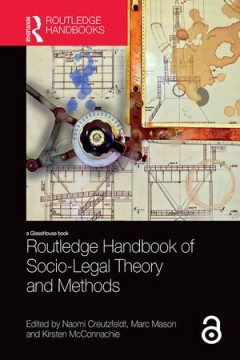
Routledge Handbook of Socio-Legal Theory and Methods
Drawing on a range of approaches from the social sciences and humanities, this handbook explores theoretical and empirical perspectives that address the articulation of law in society, and the social character of the rule of law.The vast field of socio-legal studies provides multiple lenses through which law can be considered. Rather than seeking to define the field of socio-legal studies, this…
- Edition
- -
- ISBN/ISSN
- 9780429952821
- Collation
- -
- Series Title
- -
- Call Number
- 340
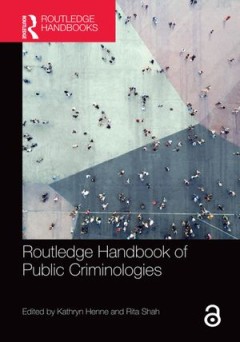
Routledge Handbook of Public Criminologies
Featuring contributions from scholars from across the globe, Routledge Handbook of Public Criminologies is a comprehensive resource that addresses the challenges related to public conversations around crime and policy. In an era of fake news, misguided rhetoric about immigrants and refugees, and efforts to toughen criminal laws, criminologists seeking to engage publicly around crime and policy …
- Edition
- -
- ISBN/ISSN
- 9781351066099
- Collation
- -
- Series Title
- -
- Call Number
- 364 ROU r
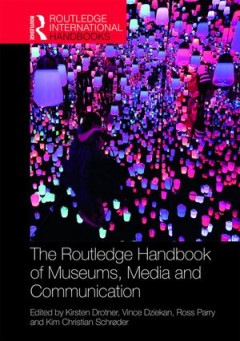
The Routledge Handbook of Museums, Media and Communication
Museums today find themselves within a mediatised society, where everyday life is conducted in a data-full and technology-rich context. In fact, museums are themselves mediatised: they present a uniquely media-centred environment, in which communicative media is a constitutive property of their organisation and of the visitor experience. The Routledge Handbook of Museums, Media and Communicatio…
- Edition
- -
- ISBN/ISSN
- 9781317197430
- Collation
- -
- Series Title
- -
- Call Number
- 930.1 ROU r
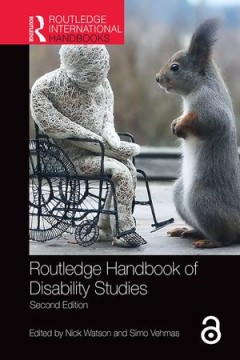
Routledge Handbook of Disability Studies
This fully revised and expanded second edition of the Routledge Handbook of Disability Studies takes a multidisciplinary approach to disability and provides an authoritative and up-to-date overview of the main issues in the field around the world today. Adopting an international perspective and arranged thematically, it surveys the state of the discipline, examining emerging and cutting-edge ar…
- Edition
- -
- ISBN/ISSN
- 9780429774102
- Collation
- -
- Series Title
- -
- Call Number
- 362.4 ROU r
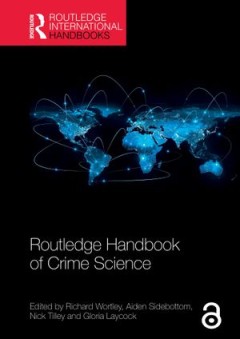
Routledge Handbook of Crime Science
Crime science is precisely what it says it is: the application of science to the phenomenon of crime. This handbook, intended as a crime science manifesto, showcases the scope of the crime science field and provides the reader with an understanding of the assumptions, aspirations and methods of crime science, as well as the variety of topics that fall within its purview. Crime science provides …
- Edition
- -
- ISBN/ISSN
- 9781135981730
- Collation
- -
- Series Title
- -
- Call Number
- 364 ROU r
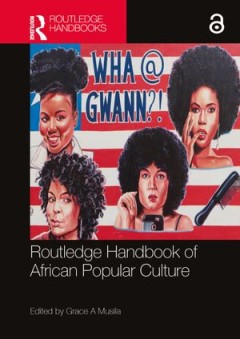
Routledge Handbook of African Popular Culture
This handbook brings together an international team of scholars from different disciplines to reflect on African popular cultural imaginaries. These imaginaries – in the sense of cultural productions, contexts, consumers, producers, platforms, and the material, affective and discursive resources they circulate – are influential in shaping African realities. Collectively, the chapters assemb…
- Edition
- -
- ISBN/ISSN
- 9781000588347
- Collation
- -
- Series Title
- -
- Call Number
- 306 ROU r
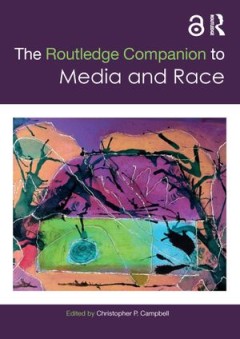
The Routledge Companion to Media and Race
The Routledge Companion to Media and Race serves as a comprehensive guide for scholars, students, and media professionals who seek to understand the key debates about the impact of media messages on racial attitudes and understanding. Broad in scope and richly presented from a diversity of perspectives, the book is divided into three sections: first, it summarizes the theoretical approaches tha…
- Edition
- -
- ISBN/ISSN
- 9781317695837
- Collation
- -
- Series Title
- -
- Call Number
- 302.23 MED m
 Computer Science, Information & General Works
Computer Science, Information & General Works  Philosophy & Psychology
Philosophy & Psychology  Religion
Religion  Social Sciences
Social Sciences  Language
Language  Pure Science
Pure Science  Applied Sciences
Applied Sciences  Art & Recreation
Art & Recreation  Literature
Literature  History & Geography
History & Geography